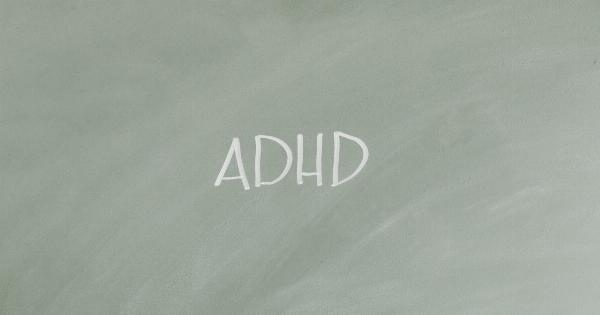Attention Deficit Hyperactivity Disorder (ADHD) is a neurodevelopmental disorder that affects both children and adults.
It is characterized by persistent patterns of inattention, impulsivity, and hyperactivity, often leading to difficulties in academic, social, and occupational settings. Despite its prevalence and impact on individuals, there has been much debate surrounding the legitimacy of ADHD as a genuine medical condition. This article aims to explore the facts and dispel any misconceptions surrounding ADHD.
Understanding ADHD
ADHD is a complex condition that impacts various aspects of an individual’s life. It is important to note that ADHD is not caused by poor parenting, lack of discipline, or simply a result of laziness.
The disorder has a strong biological basis, with numerous studies supporting this claim.
ADHD Symptoms
The symptoms of ADHD can manifest differently in individuals. There are three main subtypes of ADHD:.
1. Inattentive subtype:
People with this subtype struggle primarily with inattention. They may have difficulty focusing, staying organized, completing tasks, and may be easily distracted.
2. Hyperactive-impulsive subtype:
Those with this subtype exhibit hyperactivity and impulsivity. They may have a constant need to move, have difficulty staying seated, act without considering consequences, and interrupt others frequently.
3. Combined subtype:
This subtype combines both inattentive and hyperactive-impulsive symptoms. It is the most prevalent form of ADHD.
Diagnosis of ADHD
ADHD is diagnosed based on a comprehensive assessment that includes a thorough medical history, observation of symptoms, and evaluation of the impact on daily functioning.
The Diagnostic and Statistical Manual of Mental Disorders (DSM-5) provides specific criteria for the diagnosis of ADHD.
Biological Factors
Research has revealed several biological factors that contribute to ADHD. Genetic predisposition plays a significant role, with studies indicating that ADHD tends to run in families.
Neurotransmitter imbalances, particularly involving dopamine and norepinephrine, have also been identified as potential causes. Additionally, brain imaging studies have shown structural and functional differences in certain regions of the brain in individuals with ADHD.
Treatment Approaches
ADHD can be effectively managed through various treatment approaches. Medications such as stimulants (e.g., methylphenidate) and non-stimulants (e.g., atomoxetine) are commonly prescribed to alleviate symptoms.
These medications help regulate neurotransmitter activity in the brain. Behavioral therapy, counseling, and educational interventions are also important components of a comprehensive treatment plan.
Controversies Surrounding ADHD
While scientific evidence overwhelmingly supports the existence and impact of ADHD, controversy remains. Some argue that ADHD is overdiagnosed, leading to concerns about unnecessary medication use.
Others question the long-term effectiveness and potential side effects of medications used to treat ADHD. However, it is crucial to consider that appropriate diagnosis and individualized treatment can greatly improve the quality of life for those with ADHD.
ADHD in Adults
ADHD is not limited to childhood but can persist into adulthood. However, it is often more challenging to diagnose ADHD in adults, as symptoms may manifest differently or be mistakenly attributed to other conditions.
Many undiagnosed adults struggle with work performance, organization, time management, and maintaining relationships. Seeking proper assessment and treatment can make a significant difference in their lives.
The Importance of Awareness and Support
Creating awareness about ADHD is crucial to reduce stigma and provide support to individuals with the disorder. Education for parents, teachers, and society at large is essential in promoting understanding and empathy.
By fostering a supportive environment, individuals with ADHD can overcome challenges and achieve their full potential.
Conclusion
ADHD is not a mere fiction but a real neurodevelopmental disorder with significant implications for those affected. Numerous scientific studies have established its biological basis and its impact on an individual’s daily functioning.
While controversies exist, appropriate diagnosis and comprehensive treatment approaches can greatly benefit individuals with ADHD, enabling them to lead fulfilling lives.































